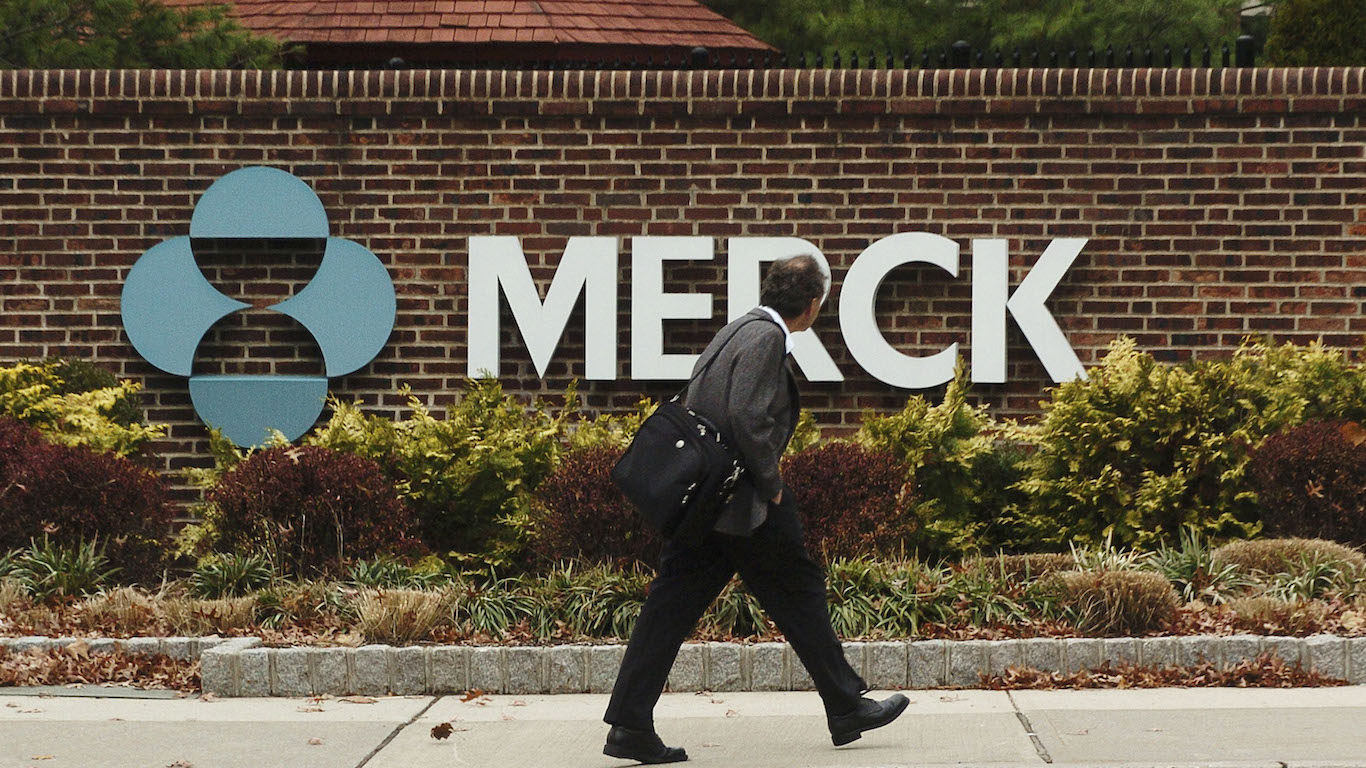Investing
Wall Street Analysts Thought Merck Stock Had 10% Downside Risk Heading Into Earnings. That Materialized, So What's Next?

Published:

Merck & Co. (NYSE:MRK) is a prominent American multinational pharmaceutical company many investors know for its brand-name drugs such as Keytruda, and the myriad of commercials the company shows on popular television channels we’re all exposed to.
With the pharma giant recently reporting its Q4 2024 earnings on February 4, 2025, investors certainly have a lot to digest. A number of analysts had suggested Merck could be among the companies with downside risk, with some calling for declines of around 10% over the course of the next year. The stock’s price action over the past couple days has provided just that level of downside.
So, let’s dive into what to make of these recent earnings, and whether this downside is likely to continue from here.

Merck reported revenue and earnings which beat analyst estimates very narrowly, but provided relatively weak full year guidance. It’s these guidance numbers that investors were hoping would tick higher, and for Merck (and other companies in the big pharma space), this appears to be the key issue investors are concerned with right now.
However, some analysts have noted concerns around Merck’s ability to retain a robust pipeline over the long-term, as expiring patents and competition heat up in the big pharma space. Jeffries analysts are among those who believe that investors could remain frustrated with the company’s long-term outlook, and this earnings report does certainly accentuate those concerns.
Overall, investor sentiment appears to remain mostly bullish, with 19 out of 26 analysts still rating the stock a strong buy. Thus, this could be a buying opportunity for those adventurous investors out there, depending on one’s view of the company’s long-term outlook and ability to develop its pipeline.

As Merck continues on its path in 2025, the company faces several key growth drivers that could shape its financial trajectory. Keytruda remains a dominant force, with ongoing approvals for new indications expected to fuel long-term sales growth. Analysts project Keytruda’s revenue could reach $30 billion by 2028, reinforcing its role as Merck’s top-performing drug. Meanwhile, Gardasil revenue stabilization in China offers a critical opportunity to offset weaker performance in developed markets, easing investor concerns.
Beyond its established products, Merck’s pipeline innovations are gaining attention. The development of subcutaneous Keytruda and the anticipated launch of Winrevir could strengthen its oncology portfolio, while Phase II trials for antibody-drug conjugates (ADCs) may enhance long-term growth prospects. These advancements, if successful, could solidify Merck’s competitive edge in cancer treatment.
It’s these drugs in development that will be most important for investors to watch moving forward. If Merck can report positive developments on any of these drugs, I think it’s entirely possible this stock could be poised for upside, considering how far it’s already fallen after these earnings.

Merck secured a positive recommendation from the European Medicines Agency’s CHMP for its pneumococcal vaccine, CAPVAXIVE™, a key step toward EU approval. The European Commission’s decision is expected by Q2 2025. Targeting adults 18 and older, the vaccine aims to prevent invasive pneumococcal disease and pneumonia, addressing severe health risks.
CAPVAXIVE targets 21 pneumococcal serotypes, covering more IPD cases in adults than PCV20, though no direct efficacy studies exist. Supported by Phase 3 trials, including STRIDE-3, it has approvals in the U.S., Canada, and Australia, with reviews ongoing in Japan and other regions. Merck, with a 76.59% gross margin and $63.17 billion in revenue, continues expanding its global vaccine reach.
Moreover, Merck announced a $0.81 quarterly dividend and a $10 billion stock buyback, reinforcing shareholder value. Meanwhile, it faces a jury trial over allegations of misleading marketing for its Gardasil vaccine. The FDA also granted priority review for expanding Welireg’s use, potentially making it the only U.S. therapy for rare adrenal tumors.

In my view, Merck is one of those bullet-proof companies that should stand the test of time over the long-term. The reason why I initially asked the question of whether this stock could drop 10% after earnings is that this isn’t a particularly volatile name.
However, with this stock seeing the worst-case decline most analysts had priced in for the full year, I think the balance of risk/reward is to the upside, at least for now. There will need to be some sort of catalyst for a rally, however. So, for now, this is a stock I think some investors may choose to rotate out of, until there’s positive news flow. That’s the way the investing game works.
After two decades of reviewing financial products I haven’t seen anything like this. Credit card companies are at war, handing out free rewards and benefits to win the best customers.
A good cash back card can be worth thousands of dollars a year in free money, not to mention other perks like travel, insurance, and access to fancy lounges.
Our top pick today pays up to 5% cash back, a $200 bonus on top, and $0 annual fee. Click here to apply before they stop offering rewards this generous.
Flywheel Publishing has partnered with CardRatings for our coverage of credit card products. Flywheel Publishing and CardRatings may receive a commission from card issuers.
Thank you for reading! Have some feedback for us?
Contact the 24/7 Wall St. editorial team.